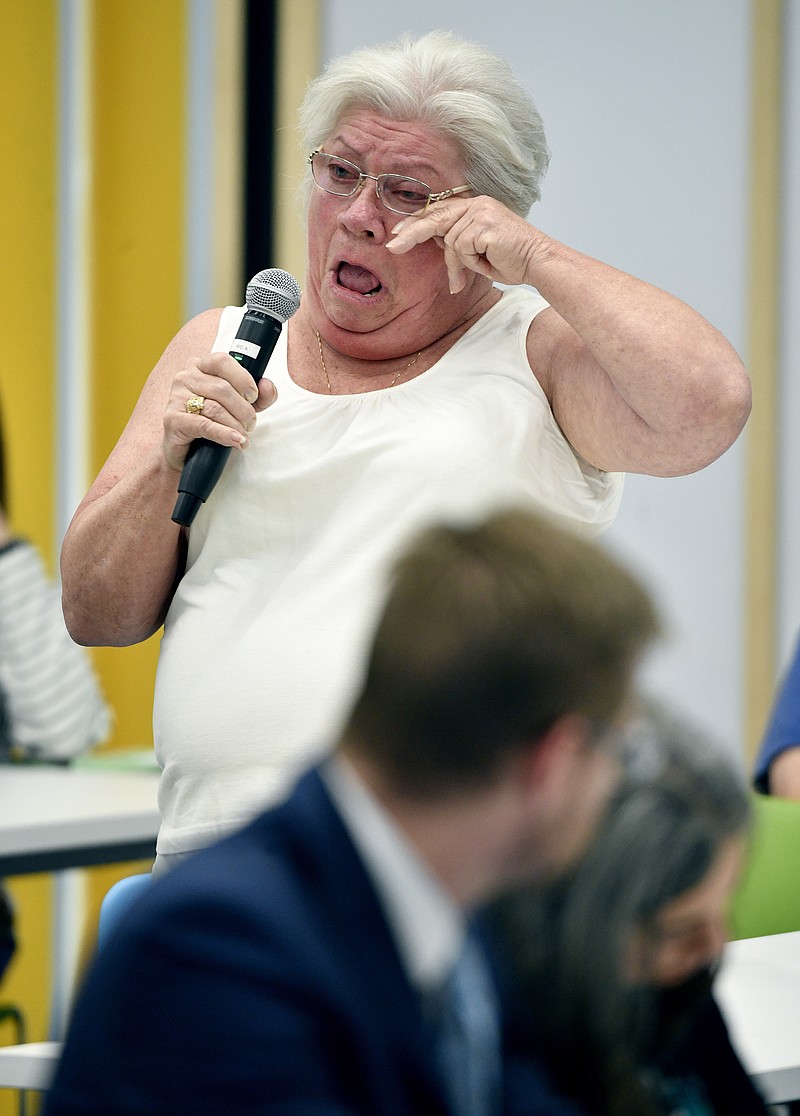NASHVILLE, Tenn. (AP) - Tennessee's plan to become the first state to receive Medicaid funding in a lump sum drew overwhelming opposition and no praise at its first public hearing Tuesday.
Around 30 people worried aloud at the Nashville hearing that the $7.9 billion block grant proposal could compromise coverage and care for Tennessee's most vulnerable citizens. Some contended the plan would be illegal. Many called for Tennessee to expand Medicaid instead.
The hearing offered a tough initial in-person public review of the plan for officials with TennCare, Tennessee's Medicaid program. Republican Gov. Bill Lee revealed the overhaul proposal last month, touting it as a chance to be innovative and demonstrate efficiencies in delivering the same services. Tennessee has a November deadline to submit its final proposal to the federal government.
"We have represented (here) trade associations, disability groups, specialty care, primary care, physicians, charitable clinics, pediatrics, caregivers, senior citizens, community mental health experts, addictions experts, mental illness experts, attorneys, mothers, a father... and others," said Tom Starling, CEO of Mental Health America of the MidSouth. "I mean, this is essentially the safety net group of Middle Tennessee, if not of the state of Tennessee. And we're saying that this just doesn't work."
Earlier Tuesday, the governor told reporters that he is not concerned about the plan's legality, adding that President Donald Trump's administration is supportive of states putting forth proposals. He contended current beneficiaries won't risk losing benefits or being taken off eligibility rolls. He also said the plan is an opportunity for "providing more services to the TennCare population and potentially providing more access to people to those services."
(Read more: Thirteen national health care groups issue letter opposing TennCare block grants)
"It's going to be a big win for Tennessee if we get it done. We feel really, really good about the prospects," Lee said. "But it's not perfect. So we want to make it more perfect by getting public comment."
Shannon Baker of the American Lung Association's state chapter was among the many speakers who were not convinced that Lee could deliver on those promises.
"As the gap between the block grant and actual cost of patient care increases over time, Tennessee would be forced to limit new enrollment, reduce benefits, lower provider payments, or increase cost sharing for patients," Baker said.
Democratic U.S. Rep. Jim Cooper spoke first at Tuesday's meeting, arguing the plan would further damage health and help close more hospitals, a trend that has been hitting rural Tennessee. He said Tennessee should instead expand Medicaid under former President Barack Obama's health care law.
"This waiver request not only doesn't help, it actually goes backwards," Cooper said. "This is a radical Trump inspired plan to treat Tennesseans like guinea pigs."
More public hearings are set to following Wednesday in Knoxville and Thursday in Jackson. Officials say hearings are being planned for Memphis and Chattanooga as well. Tennesseans also can submit comments on the proposal online until Oct. 18. Another federal public comment period would follow.
The block grant would only cover core medical services for the disabled and blind, children, adults and elderly - or about 1.2 million Tennesseans. This means administrative costs, prescription drugs, uncompensated hospital care payments and individuals dually eligible for Medicaid and Medicare would not be part of the block grant plan, which is a much lower population of TennCare.
The federal government would increase Tennessee's block grant funding if enrollment grows beyond what was originally calculated.
